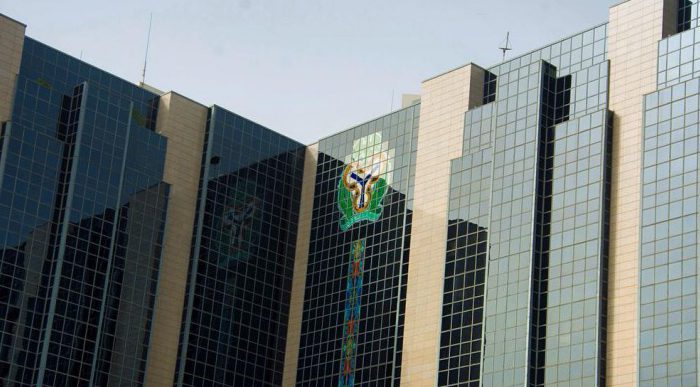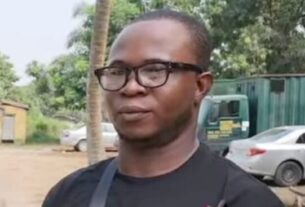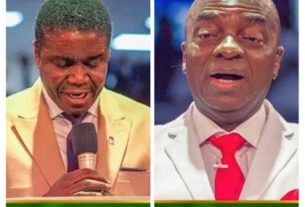The Central Bank of Nigeria (CBN) on October 26, 2022, announced its policy to redesign Naira notes of N1,000, N500, and N200 denominations.
Despite the support and condemnations it received from critical stakeholders in the country, the CBN got the solid backing of President Muhammadu Buhari.
A Financial Analyst and Director, at Timpitals Limited, Rotimi Olarewaju, shared his with InsideNigeria on the CBN’s policy on the naira notes redesign, among other issues.
As the CBN appears set to implement the Naira change with banks’ compliance to its directive in preparedness for a smooth transition to the new currency note, Olarewaju said that the “Exercise will not scratch the problems faced by the apex bank in managing the Naira but will result in an expensive and ineffective utilisation of the already scarce resources, which will throw the economy into chaos, if not properly executed.”
He said: “Äll signs already point to the fact that the CBN Policy will, with just six weeks, allows for cash to be exchanged all over the country.
“This begs the question “why the rush?” If this was anywhere in their medium-term plan and not just a hastily cooked-up idea for the glorification of their principal, why are we just hearing about it?”
According to the finance expert, “The only logical conclusion, therefore, is that this exercise will become the most visible legacy of this administration until another comes along to do the same in a never-ending cycle of poor administrative judgement and waste.”
Olarewaju said that he has tried several times to resist the urge to speak on the redesigning of the Naira policy announced by the CBN “largely because a lot of commentary has been passed on it already, most of which I agree with, but decided to add my two cents on the matter as I believe some issues are yet to be addressed.”
While giving a brief history of the Nigerian Naira, Olarewaju, who is also a member of faculty at the Centre for International Advanced Professional Studies (CIAPS), Lagos, lamented: “Since its existence in 1973 as the major unit of currency, the Naira has suffered greatly for reasons ranging from a huge loss of value leading to the birth of larger denominations to politically-driven motives poorly disguised as economic rationale for currency shape-shifting.”
According to him, “1973 was to assert our sovereignty and a shared purpose/identity, ’77 celebrated a “hero” (a matter reserved for another day), ’79 introduced smaller denominations to make up for the myopic visions of ’77. 1984 reflected both the soaring inflation occasioned by a series of bad governmental fiscal and monetary policies, as well as slightly curbing the counterfeiting menace.
“With a bit of clarity in 1999, they tried to address the massive headache that became the inevitable cost of a cash economy, which had, at the time, seen over 70% of money in circulation outside the banking system as most of the trading done in the country was informal. Some financial reforms were put in place but obviously (in hindsight) nearly not enough to alter direction.”
He said that the Nigerian government, while “noticing the huge cost of printing money and the seemingly limited lifespan of the then Naira (due to the cultural disrespect of money coupled with the absence of alternative payment systems widely accepted), we went the polymer way, which seemed at the time a reasonable solution to the mistreating over dependency of cash; but again, just a cosmetic approach to the problem.”
Speaking on whether the policy will help check counterfeiting of the naira, the CIAPS member of Faculty noted: “The issuance of new banknotes does nothing to curb this problem. At best, it might delay the operations of criminal elements by a few months till they can perfect a new template. It is noteworthy at this point to mention that the rate at which counterfeiting is a problem to the Nigerian economy is not evident as a quick survey of six tellers in six different commercial banks conducted by me since the announcement revealed the opposite of the CBN boss’ claim.”
As a matter of fact, Olarewaju said that individual tellers are rarely equipped with counterfeit detection equipment as was the case a few decades ago to signify the emphasis (or lack thereof) commercial money banks place on the matter.
He added: “Even the United States of America having the most traded currency globally with possibly the highest risk of counterfeiting has only significantly altered its currency design just once since the 1920s and that happened between 1996 to 1998, negating Mr. Godwin Emefiele’s theory of changing currencies every five to eight years.”
On his view on the redesign policy on increasing cash in bank vaults, Olarewaju said that changing the Naira design and parading the shortcomings of the financial sector as reason that it is getting old since it has become the go-to “reason” for currency redesign, has never solved that issue in the past.
He added that the problem has persisted mainly because “the larger portion of our economic activities remain in the informal sector,” even as the government might want to focus its efforts at policies and infrastructure that will entice the informal section of the Nigerian population into the financial markets.
On whether it will curb criminal activities, the Timpitals Limited director noted that “A largely cash economy creates loopholes for illicit monies to flow both within and outside the economy.”
He added that “Most large illicit transactions are either denominated or quickly converted into USD, thus making it difficult for redesigning to minimize these activities. Besides, who says these criminals cannot “wash” their cash (as I suspect they often do) by buying into cash-based businesses like car dealerships, jewellery shops, casinos, night clubs, among others, to temporarily get their money into the system and pull it out again (if their aim is to avoid being caught with “old money”).
He advised that the government should focus its attention on expanding the economy and creating jobs for the vast number of unemployed people while at the same time find innovative ways to aid and improve Policing specifically and security, in general, using both conventional methods and technological tools, which he stated, is the only way to limit crime.
Saying that he deliberately ignored going into details about the claim that currency redesign will help limit inflation as a lot of commentators and analysts have rightly pointed out, Olarewaju added: “It is false, however, to add strength to that argument. If it were really an inflation-curbing tool, Western governments (particularly the European Union) currently witnessing record inflation occasioned at first by the pandemic and later by the outbreak of war in Ukraine, would have already started that conversation. They haven’t and possibly won’t.”
On the current reason for the Naira redesign, Olarewaju stated that the CBN Governor, Godwin Emefiele, expressed concern over some challenges faced in the management of the existing banknotes in circulation, particularly those outside the banking system, noting that such will have severe consequences for the integrity of the CBN and the country.
The finance analyst said the CBN had apprehension about the shortage of clean and fit banknotes, which is increasing the ease and risk of counterfeiting evidenced by several security reports and compliance with global standards to circulate new legal tender every five to eight years.
According to Olarewaju: “Emefiele believes that Naira redesign would help bring in the currency outside the banking system and make its monetary policies more efficacious, deepen its cash-less economy drive and minimise incidents of terrorism and kidnapping.”
Also, the aggregation of contending positions on the issue appears to show that the change was more desirable than the consequences of retaining the current state of the local currency.
All the commercial banks in Nigeria now open shops for customers during the weekends, as this development is believed to help some depositors begin the process of aligning their cash holdings with the expected withdrawal of old Naira notes.
Some banks are already reporting rising cash deposits though it was not yet clear the sources of those deposits.
A visit by InsideNigeria to some commercial banks in Lagos did not record any sign of rush or surge in the banking hall.
InsideNigeria also learnt that such a surge may not happen given the new banking environment, which is now heavy on cash-less transaction. They expect more transactions to be made through electronic channels as the process of implementing the currency redesign gathers momentum in the weeks ahead.
Meanwhile, President Buhari, in a statement by his Senior Special Assistant on Media and Publicity, Mallam Garba Shehu, had said he is convinced the nation will gain a lot by redesigning the currency.
Speaking in a Hausa radio interview with Halilu Ahmed Getso and Kamaluddeen Sani Shawai, Buhari said reasons given by the CBN convinced him that the economy stands to benefit from a reduction in inflation, currency counterfeiting and the excess cash in circulation.
He said he did not consider the period of three months for the change to the new notes as being short.
According to him, “People with illicit money buried under the soil will have a challenge with this, but, workers, businesses with legitimate incomes will face no difficulties at all.”
But the Bank Customers’ Association of Nigeria (BCAN) feels the time frame for withdrawing the old notes was too short, and have, therefore, appealed to the CBN to extend the deadline for returning of the old notes.
The CBN’s spokesman, Osita Nwanisobi, in a statement from the apex bank, said that the CBN remains a very thorough institution that follows due process in its policy actions.
Nwanisobi said that the management of the CBN, in line with provisions of Section 2(b), Section 18(a), and Section 19(a)(b) of the CBN Act 2007, had duly sought and obtained the approval of the President Buhari in writing to redesign, produce, release and circulate new series of N200, N500, and N1,000 banknotes.
While calling on Nigerians to support the currency redesign project, Nwanisobi said it is in the overall interest of the citizenry, as some persons were hoarding significant sums of banknotes outside the vaults of commercial banks.
He urged that the policy should not be encouraged by anyone who means well for the country.








